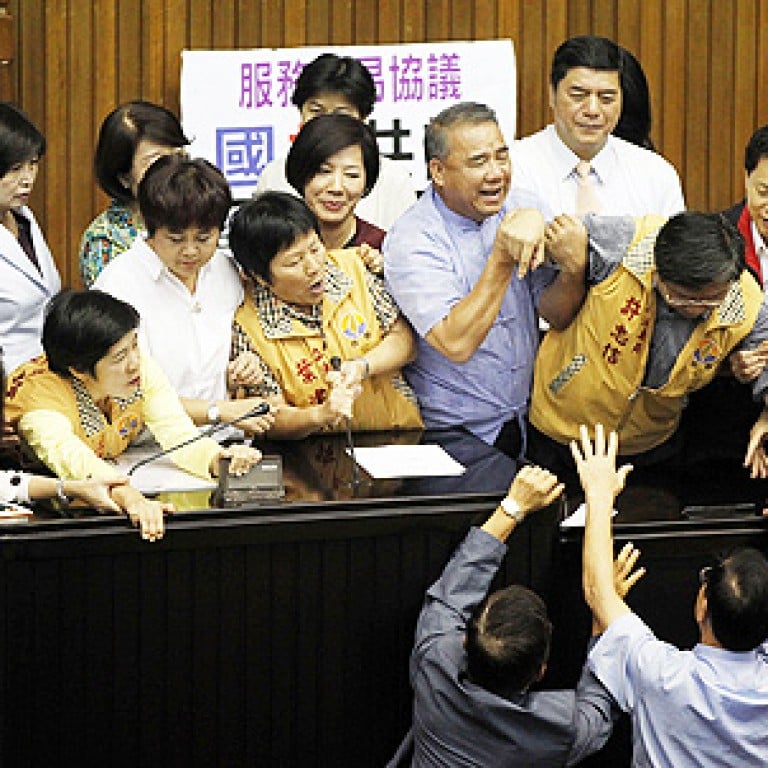
Scuffles erupt ahead of Taiwan-China pact debate

The pact, signed between the sides on June 21, allows each to invest in the other’s service sectors, including banking. Its approval by Taiwan’s legislature is considered to be a foregone conclusion, because the body is dominated by President Ma Ying-jeou’s ruling Nationalist Party.
Legislative debate is expected to go on for about 10 days.
The scuffles broke out shortly after dawn when several protesters tried to push their way through a police line and enter the legislative building. There were no reports of arrests.
The opposition Democratic Progressive Party opposes the service sector bill because it says it will add to what it already considers to be undue Chinese influence over Taiwan.
It always says it will hurt small Taiwanese businesses because of difficulties they will face in competing with cash-rich, mostly state-run Chinese companies intent on investing in Taiwan.
Under the pact, China will allow Taiwanese firms to conduct online shopping and offer medical care, transportation, tourism and other services on the mainland. For its part, Taiwan will allow mainland companies to run businesses like publishing, theatres, beauty shops, morgues, and medical care on the island.
Ma’s Nationalists support closer economic ties with China, insisting that they are the best way of preventing Taiwan from becoming economically marginalised, as more and more countries in Asia negotiate far-reaching trade agreements with Beijing.
Taiwan signed its own trade agreement with China in 2010, which featured reduced bilateral tariffs on a broad range of goods. Since then however, the Taiwanese economy has sputtered badly, and at only 1.3 per cent, GDP growth last year was one of the lowest in Asia.
Taiwanese have invested more than US$150 billion in the mainland – much in high-tech assembly line production. But Taiwan has only approved US$7 billion of mainland investments on the island since a longstanding investment ban was eased in 2009.
Taiwan and the mainland split amid civil war in 1949, and China continues to claim the democratic island as part of its territory, to be brought back into the fold by persuasion if possible, by force if necessary.
